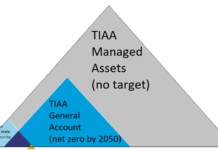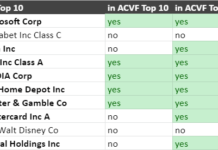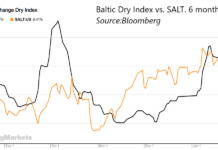Before you consider green stock market investments, invest in yourself.
A reader of my article on asset allocation for green energy investors brought up an important point: we may have green opportunities in our own lives, such as improving the energy efficiency of our homes, which will return much safer and higher returns than green stocks, especially when the market as a whole is as overvalued as I currently believe it is.
Homeowners typically have a large number of high-return energy efficiency investments they can make. Since energy efficiency reduces energy use, it both produces returns and is very green, since pollution from fossil fuels is reduced. Even reducing the use of renewable energy is green, because all energy production has some impact on the environment and uses resources. Furthermore, energy efficiency reduces financial risk, because you are less subject to fluctuating energy prices if you use less energy.
If you are considering investing money that is in an IRA or other account that is difficult to access without tax consequences, you should probably go ahead with your green investment plans. But if you have money that is easy to access, here are a few steps you should take first.
Assess Your Opportunities
Most homeowners have countless opportunities to invest in energy efficiency or renewable energy that they don’t know about. An energy audit is a good way to discover your opportunities. Many utilities have programs to give customers free or subsidized energy audits.
Check with your utility (gas and electric) first to see if they have such a program. If not, and you are a do-it-yourselfer, visit a website dedicated to helping you improve your home’s efficiency, such as the EnergyStar site. If you’re not a do-it your selfer, look for a RESNET certified energy auditor and pay for an energy audit. Prices for audits vary a lot, but I’ve heard that $200 – $300 is a good ballpark figure.
You will be amazed, or even shocked, at how many opportunities for savings you find, even in a brand-new home. The improvements you make usually qualify for federal tax credits, as well as (possibly) rebates from your utility or state tax credits.
Any energy efficiency or renewable energy measure with a payback of less than 10 years is likely to be a better investment than green stocks or funds, especially in today’s overvalued markets. Here are ten that almost always have great financial returns, many of which are good enough to perform even if you rent and plan to stay in one place for a year or two.
- Keep your car tires inflated to the proper pressure.
- Change and clean your air furnace filter regularly. Take a hose and get the dirt off the coils in the outside heat exchanger as well.
- Caulk air leaks.
- Use CFLs.
- Install a Water Heater Blanket.
- If you have an old fridge in the garage or basement, unplug it.
- Install low-flow showerheads.
- Use an intelligent Power Strip
to turn off standby mode.
- Get a power meter
to hunt for energy hogs around the home.
- When replacing electronics, computers, cars, and appliances, get energy efficient ones, especially anything that’s often on or in standby when plugged in. (cordless phones, TVs and set-top boxes, clocks, etc.)
Lists like this abound on the internet. Consult several for ideas.
Debt
Paying off debt causes no environmental harm, and increases your financial security. Since I think the market is overvalued, if you have any debt, including credit card debt, car loans, and even tax-deductible mortgages, you’ll probably be better paying those off than investing in the stock market. As everyone who didn’t already know it learned in 2008, all investments are risky. On the other hand, if you pay off debt, you get a guaranteed return equal to the interest rate you’re paying off, and your investment can’t fall in value. That debt won’t be there no matter what happens in the stock market.
There are times when stock market investments make sense even if you have low-interest debt. It made sense to invest in March 2009. Now, in late 2009, I fell the markets are quite overvalued, so paying off any debt makes a lot more sense to me than buying stocks or mutual funds. Even green stocks and funds.
Conclusion
If you’ve paid off all your debt, and taken advantage of your efficiency investing opportunities, then it’s time to consider green stock market investments. If you have not read them already, here’s where I discuss how much to invest, and what to invest in.
I don’t currently have plans for more articles in this Green Energy Investing
for Beginners series. If you feel there’s something I still need to cover, please leave comments here.
DISCLOSURE: The author will receive referral payments for purchases through the Amazon links.
DISCLAIMER: The information and trades provided here and in the comments are for informational purposes only and are not a solicitation to buy or sell any of these securities. Investing involves substantial risk and you should evaluate your own risk levels before you make any investment. Past results are not an indication of future performance. Please take the time to read the full disclaimer here.









Great article. I too agree that the market is inflated at the moment. I was able to buy low around March and cash in when the market was edging around 9k. Back then I thought the market was a bit inflated. To see it push 10k is suprising to me, yes I’m kicking myself for leaving early, especially with the stock I purchased APWR continuing to surge. However, I do believe a correction is coming. With that could come another round of impactful employment moves. Lowering your debt load is the best way to prepare for another round of bad economic times.
Thanks,
Justin
Please contact me to hear about our experience with an Energy Star Rater that includes, harassment of a senior citizen, filing false complaints with the police, fraud, etc. Ask RESNET why they refuse to do anything. This is very serious and people need to know, and you may think twice about recomending anyone associated with RESNET. Just my opinion
RESNET certification is only relevant to a rater’s skills, not his or her morals.
I’m sorry to hear you had a bad experience, but it seems strange to assume that all Energy Star Raters are bad because of it.
An analogous situation would be if you had a bad experience with a dentist, and the ADA did not respond to your complaints. The appropriate response is to find a better dentist (and possibly seek redress in a court of law with the first one), but not stop going to dentists.
Comments are closed.